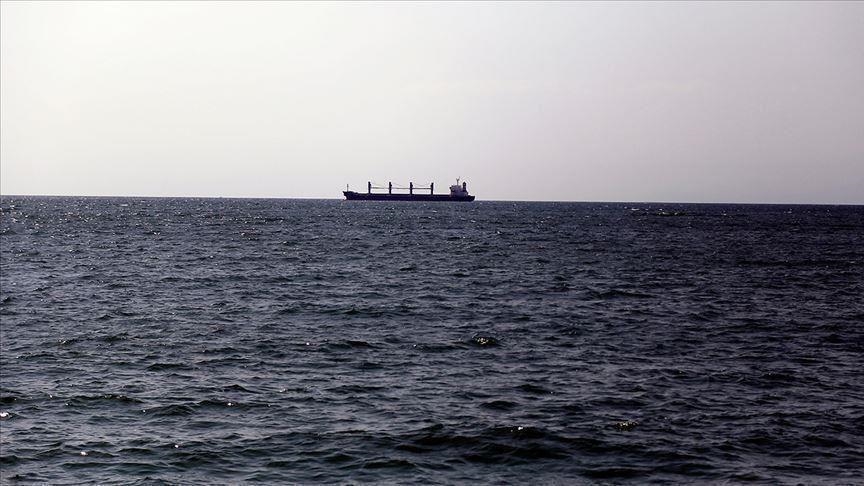ISTANBUL
Houthi attacks on commercial vessels in the Red Sea is forcing logistics firms to use alternative routes, increasing shipping rates and delaying deliveries.
Iran-backed Houthi rebels in Yemen significantly stepped up their involvement in the ongoing conflict in the Gaza Strip, devasted by weeks of Israeli attacks, by targeting vessels in the southern Red Sea.
The group has warned it would attack all Israel-bound ships in the Red Sea, one of the world’s most frequently used sea routes for oil and fuel shipments, in a bid to support Palestinians as they face Israel’s “aggression and siege” in Gaza.
Suspending their Red Sea operations, many firms have had to redirect their vessels south, adding at least 10 days of sailing and extra costs as they navigate the Cape of Good Hope, where shipping rates have increased by 15% around Africa’s southern tip.
The world’s largest container company, Italian and Swiss-owned Mediterranean Shipping Company (MSC), Denmark-based shipper Maersk, German shipper Hapag-Lloyd, France-based shipper CMA CGM, and Japanese container conglomerate Ocean Network Express (ONE) were among the companies that suspended all sailings in the Red Sea.
According to the US Energy Information Agency (EIA), oil shipments via that route accounted for 12% of total seaborne-traded oil in the first half of 2023, and liquefied natural gas (LNG) shipments accounted for 8% of worldwide LNG trade.
Oil prices climbed this week, with Brent once again trading over $80 a barrel.
Reroute delays
Trevor Heaver, professor emeritus in transportation studies in Sauder School of Business of the University of British Columbia, said the change in shipping routes would cause immediate delays in supply chains and throw off ship schedules.
The ramifications will affect Europe and Asia first but will raise shipping costs and reduce reliability worldwide quickly, he told Anadolu.
“The longer the ship diversion lasts, the greater and the more widespread the costs increases will become,” said the Vancouver-based academic, adding that they would not be as severe as the problems faced during the coronavirus pandemic.
Safety
Jack Kennedy, a research and analysis associate director in S&P Global, had said the Houthi attacks are likely to continue targeting international shipping irrespective of their public connection to Israel.
“Military support for shipping has yet to be confirmed, but may likely consist of NATO member states with some support from regional allies,” he said in a press release.
The attacks have also triggered an international response, with the US announcing the creation of a multinational mission on Monday to counter them.
In a statement, Defense Secretary Lloyd Austin asserted that the escalating attacks threatened the free flow of commerce, endangered innocent mariners, and violated international law.
Egyptian Foreign Minister Sameh Shoukry said on Thursday that Cairo would continue coordinating with its partners on freedom of navigation through the Red Sea.
Shoukry, in a joint press conference with British counterpart David Cameron in the Egyptian capital, said littoral countries had a permanent responsibility to protect Red Sea.
British Foreign Secretary Cameron had earlier said the UK and its partners would not tolerate threats to maritime security in the Red Sea.
The EU will also contribute to the maritime coalition led by the US.
In an extraordinary Political and Security Committee (PSC) meeting on Wednesday, member states agreed to contribute to the US Operation Prosperity Guardian, EU foreign policy chief Josep Borrell said on X.
Consumer goods to face largest impact
Over 300 industrial categories and 6,000 products, representing 14.8% of all imports in Europe, the Middle East, and North Africa, were shipped from Asia and the Persian Gulf by sea — with the shortest route that passing through the Red Sea. This included 21.5% of refined oil and 13.1% of crude oil, according to S&P.
Chris Rogers, another research director in S&P, said “Just 8.6% of total Asia / Gulf imports came from Europe / MENA by sea, though the automotive industry may face an outsize impact with 41.3% of vehicles and 20.8% of parts shipping on that route.”
Chris Rogers, another research director at S&P, stated that only 8.6% of total imports from Asia and the Gulf were received from Europe, the Middle East, and North Africa by sea. He noted that the automotive industry may be particularly affected, with 41.3% of vehicles and 20.8% of parts being shipped on this route.
Shipments of perishable goods, such as pork and milk products, may not be able to withstand the longer routes, he added.
Rogers emphasized that consumer goods would face the largest impact, although the current disruptions are occurring during the off-peak shipping season.
He noted, “It is also important to differentiate a short-term shock from a long-term realignment.”
In the short term, ports will have to cope with a shortage of imports followed by a surge as the “global fleet” accumulates due to the pauses and subsequent resumptions of sailing.
He added: “Transits via the Cape of Good Hope adds at least 10 days and over 15% to shipping costs.
“Land-based shipments by rail require crossing Russia while trucking from the Gulf to Israel may only offset around 3% of shipping,” he explained.
The fact that vessel traffic through the Panama Canal is already restricted is forcing all major shipping to use Cape routes or transloading strategies.

